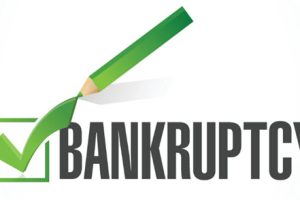Trustee Files Motion To Convert In Yellow Cab Bankruptcy

Claiming that the company can no longer afford to pay its bills, U.S. Trustee Patrick Layng asked a bankruptcy judge to involuntarily change the tax company’s Chapter 11 reorganization to a Chapter 7 liquidation.
Mr. Layng, who oversees bankruptcies in the Northern District of Illinois on behalf of the judge, added that Yellow Cab breached its fiduciary duty by failing to file timely financial reports. According to the latest documents on file, the company had less than $200,000 in cash and owed over $1 million in legal fees alone. On top of that, these professionals claim they have not been paid in a year. Finally, Chapter 11 cases often feature protracted litigation over the reorganization plan, and the trustee predicts that these costs will go unpaid as well. Counsel for both Yellow Cab and the creditors’ committee said they were in discussions with the trustee.
Yellow Cab filed Chapter 11 in March 2015, one day after a jury ordered the company to pay $26 million in a wrongful death lawsuit. That case is currently on appeal.
When to Convert
Many consumers with unpaid secured debt, such as delinquent mortgage payments, start off in a Chapter 13 repayment bankruptcy, as they fully intend to catch up on payments within the grace period allowed by law, which is normally either three of five years. But in the words of Scottish poet Robert Burns: “The best-laid plans of mice and men often go awry.” Sometimes, the borrowers are unable to obtain loan modifications; other times, the monthly trustee payments are simply too onerous.
In situations like these, conversion to Chapter 7 is often the best option. The same property exemptions apply, regarding things like motor vehicles, personal effects, appliances, and retirement accounts. The automatic stay still applies as well. However, since there is no long-term repayment period, Chapter 7 bankruptcies are usually closed within a few months. At that point, moneylenders can resume adverse action against the homeowners; in most cases, if that adverse action involves foreclosure proceedings, the moneylender must start over from the beginning with a notice of default and opportunity to cure letter.
Since the bankruptcy remains open for several months after the conversion, an lawyer can negotiate with the moneylender to agree on a foreclosure alternative, such as a short sale, deed in lieu of foreclosure, or cash-for-keys.
How to Convert
According to the Bankruptcy Code, debtors have an absolute right to convert from a Chapter 13 to a Chapter 7 “at any time” simply by filing a motion. As a courtesy, lawyers often ask the trustees to agree to the motions, but this gesture is only a formality.
Conversions usually do not catch anyone by surprise, because we can all add. However, in terms of timing, it is sometimes best to wait until the trustee files a motion to dismiss the Chapter 13 for lack of payment or for some other reason, because an lawyer can use a possible conversion as leverage to adjust the payment schedule. The trustees get 10 percent of the monthly payments, so they have a financial interest in keeping the debtors in Chapter 13.
Contact Aggressive Lawyers
If your plans change, your bankruptcy can change as well. For prompt assistance in this area, contact an experienced bankruptcy lawyer in Chicago from the Bentz Holguin Law Firm, LLC. Convenient payment plans are available.
Resource:
sunherald.com/news/local/article93748737.html


